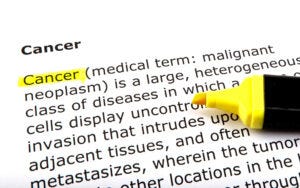Content Spotlight
Podcast: MilliporeSigma says education vital to creating unbreakable chain for sustainability
MilliporeSigma discusses the importance of people, education, and the benefits of embracing discomfort to bolster sustainability efforts.

GigaGen has partnered with the National Cancer Institute (NCI) to advance development of its anti-CTLA-4 antibody drug candidate for cancer, GIGA-564.
GigaGen, a subsidiary of Grifols, focused on advancing antibody drugs for cancers, infectious diseases, and immune deficiencies said the collaboration sets the stage for its first oncology asset to enter clinical development.
GIGA-564 is a fully human monoclonal antibody (mAb), which aims to increase anti-tumor activity and alleviate immune-related toxicities connected with traditional CTLA-4 blockade. The agreement with the NCI, part of the National Institutes of Health (NIH), will enable further preclinical and clinical studies to evaluate the candidate’s potential across different tumor types.

DepositPhotos/nenovbrothers
The program will make use of scientific and clinical expertise know-how from the NCI Center for Cancer Research. Additionally, under the terms of the deal, the NCI will conduct the Phase I clinical study of GIGA-564 in solid tumors and has the potential to be responsible for clinical studies of the program as a monotherapy or grouped with other therapies.
“No financial specifics are available but Cooperative Research and Development Agreements (CRADA) from the NIH are unique agreements between a federal laboratory and non-federal party, under which the NIH laboratory can provide personnel, services, facilities, equipment, or other resources to advance a program. They are not grants or federal contracts,” a spokesperson for GigaGen told us.
This will be the first in-human Phase I clinical trial for the drug candidate in advanced solid tumors.
“We are proud to receive the NCI’s support and partner with their esteemed clinical research team to drive the GIGA-564 program forward,” said Carter Keller, senior vice president of Grifols and head of GigaGen.
“GIGA-564 represents a new approach to designing anti-CTLA-4 agents with potential not only to enhance anti-tumor activity but also to mitigate immune-related toxicities typically associated with first generation anti-CTLA-4 therapies. We look forward to continuing to demonstrate its potential in a clinical setting as we plan to file the IND application for our first Phase I clinical trial in advanced solid tumors before the end of 2023.”
GigaGen said previous anti-CTLA-4 drugs were created to block CTLA-4’s interaction with its ligands, thus increasing T cell co-stimulation. However, this method has been associated with intensified immune-related side effects.
The firm claimed GIGA-564 has the ability to deplete intratumoral Tregs within the tumor environment and it has minimal CTLA-4 blockade. GigaGen said this makes the drug candidate distinctive and distinguishes it from commercially available anti-CTLA-4 drugs.
The spokesperson said the aim “is to develop GIGA-564 as quickly as possible within the framework of the rigors of a clinical program.”
You May Also Like